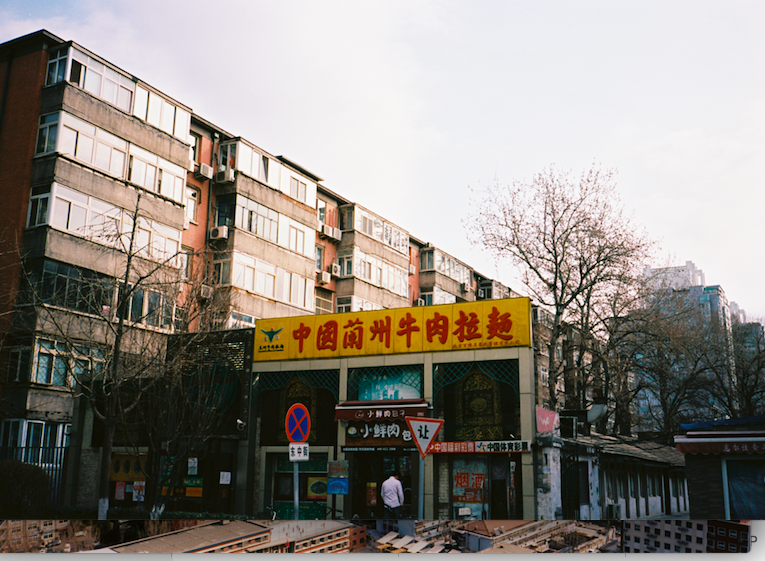Before I arrived in Beijing this spring, I decided to make a crucial investment: a year-long subscription to an internet virtual private network service.
This would be my first extended time in mainland China since I was a kid, visiting my grandparents in Beijing. Those were the good old days. During the 2008 Summer Olympics, I spent many a relaxing afternoon in my bedroom, composing heartfelt Facebook wall posts to all my middle-school friends. In the living room, my family snacked on yellow dates, and every few minutes, gasped with delight and wonder at Long Qingquan. Outside, the skies were still blue.
Back then, I was less tethered to the pleasures of social media and the government censorship apparatus much less capable of depriving me of them. When Facebook was banned in 2009, I happily swapped pokes and wall posts for Neopets and the “Name All the Characters in Harry Potter” Sporcle.com quiz—both censor-approved activities.
A decade later, the skies have turned gray, and gone are not only Facebook, Twitter, and Google, but also Snapchat, Pinterest, WhatsApp, Gmail, Tinder (!), and more recently, Reddit. This time, I was ready. I would shell out $59.99 for a fancy VPN, the blazing-fast, ultra-secure, 30-day-money-back-guarantee kind of VPN, the kind that would just pummel its way through the Great Firewall like it was Jell-O.
Here’s a quick refresher of how the Chinese internet censorship apparatus works. The Great Firewall is sophisticated. It doesn’t just block access to specific IP addresses (so Facebook, Twitter, Instagram) it also can analyze and filter URLs if they contain specific sensitive keywords.
The list of keywords is truly a mixed bunch. They range from the untouchable words (i.e., anything involving the independence of the “three T’s” Tibet, Tiananmen, and Taiwan) to the classic forbidden phrases (i.e., “Brave New World,” “1984,” any famous literary reference to a dystopian authoritarian regime) to the fun surprises (i.e., “Grass-Mud Horse” and its accompanying alpaca meme, a phrase devised by crafty Chinese netizens who discovered that the characters for “Grass-Mud Horse,” if pronounced differently, sounded like a vulgar swearword; “Winnie the Pooh” for its uncanny resemblance to the nation’s leader; or very recently “Roll Up + Sleeves,” a phrase uttered by said leader in the following sentence, “As the Party stands together with the people and we roll up our sleeves to work harder,” but honestly sounds more like the refrain in a Migos track and inevitably evolved into a catchy slogan to encourage other actions, such as “Let’s roll up our sleeves and [insert lewd action here].”).
So if you move to Beijing in the near future, you have two options. Option 1) Like the large majority of Chinese netizens who really don’t care, you could use the local Google “equivalent” Baidu. Instead of posting a tweet, you could post on Weibo. Instead of checking out “Winnie the Pooh,” you could settle for Eeyore.
For those who do not want to settle for Baidu or Eeyore, you have Option 2) Download a virtual private network, a VPN. Once you’ve downloaded the app onto your phone, you click on a little red button, wait for 10 seconds as your internet traffic is rerouted through a server in some nice city like Reykjavik or Toronto, and ding, you are back, baby! You are invincible, or at least ready to roll up + sleeves.
Or so I thought. Pro tip: The secret power of the Great Firewall is not that it is impenetrable, but that it is really annoying. It will deter you not through brute force, but through sheer inconvenience.

Say you’re lying in bed one night, wanting to check Instagram and catch up on what you’re missing in New York City. The closest Chinese social media equivalent, WeChat Moments, simply doesn’t feel the same. There is nothing quite like peering into Instagram’s little circular baubles, enviously ogling the life of Suzie, your friend’s Bar Method™ instructor. You open the VPN. But halfway into Suzie’s riveting account of her boozy brunch in Williamsburg, the VPN falters, the connection quivers, and Suzie’s story freezes. You have to wait an extra 10 seconds before the second mimosa and buttermilk waffles arrive. If this happens often enough, 10 seconds will add up to 20 which will eventually add up to a lifetime—a lifetime wasted waiting for your VPN to load.
Or say you made plans to have brunch in Beijing with a new friend. (You decide that you’re going to be way cooler than Suzie, and go for a place with Shanghai Mules and buttermilk baozi.) But you made plans over Gmail and forgot to share your WeChat details with each other. This rookie mistake only reveals itself after both of you have left home and arrived at different branches of the same brunch spot. You open the VPN to email her. But your new friend does NOT have a VPN on her phone. (Because she is still deciding whether or not it is a worthy investment. Rookie mistake #2.) With no available method of communication, you lead each other on a wild goose chase across the city. At this point, you still have yet to wean yourself off Google Maps, and the Baidu Maps interface—a sprawl of green roads orbiting the cute red pagoda of the Forbidden City—is so intimidating that you’d rather navigate via the position of the sun.
What you are still about to learn, and what will hurt more than anything, is how the Firewall has set out to jeopardize your love life. Say you’re on the subway ride to work. You open up Tinder because you believe that love continues to thrive under authoritarianism. You open up your VPN because the censor believes that your power to swipe right in search of a hookup/soulmate is a threat to the stability of the nation. (On Tinder Beijing, the “threat” typically takes the form of a twentysomething American expat who frequents hutong whiskey bars and tutors wealthy Chinese high schoolers applying to Harvard.)

But the VPN lags, and the conversation with your latest swipe won’t load. The messages are delayed. When you don’t get a reply, you start to wonder who’s playin’ with you: Hot Swipe or the Central Politburo. At this point, the subway is so crowded, and you are so utterly drenched in the sweat of the entire population of Beijing, that all you want to do is rock up to the Party headquarters and holler in frustration: “Bruh! I’m really not trying to incite trouble or stage the second Storming of the Bastille. I’m simply trying to arrange a drink date with my potential hookup/soulmate at an exposed-brick bar that we both like.”
The subway doors open. Space frees up and you can breathe again. Your date replies and you sigh with relief. You will perhaps, as Rihanna once promised, find love in a hopeless place.

Recently, I had a moment where I actually believed I was carving out a romantic haven of free speech, away from the censor’s prying eyes. My first conversation with a person I will call Hot Swipe (who had the WeChat handle Al2Savage) began something like this:
Al2Savage: “Hey!”
Me: “Hey, how’s it going?”
(Honestly, weak intro, but what else are you supposed to say to Al2Savage.)
Al2Savage: “Did you hear the good news?”
(Context: The day before, the Chinese president abolished term limits to his presidency, a move that effectively endowed him with lifelong powers. I assumed this was the good news that Al was referring to.)
Me: “More fun time with Xi? ;)”
(A pause.)
Al2Savage: “Hey, that’s Emperor Xi to you!)”
I was about to congratulate myself on my witty banter when I realized that there was something deeply wrong with a world in which courtship consists of sending winky emojis about the Great Leader through a banned dating app. I miss Neopets.






